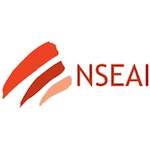
FREE Keys to Effective Communication at IEP's
May 09, 2023EDUCATION ADVOCACY
AND CONFLICT
Below you will find a link to the LEWIS IEP COMMUNICATION LIST. This is free. It is part of the Board-Certified Special Education Advocate Program TM offered by the National Special Education Advocacy Institute - NSEAI. It reviews the steps in effective professional IEP communication.
EVERYDAY IEP SCENARIO:
At the IEP Table: IEP Team Members are all convinced that the other side is “out of line”, “just plain wrong”, “unprofessional”, or any variation on that theme that you can imagine. Parents complain about putdowns, belittling, lack of civility, lying, and not having a valid voice at the IEP table. Yet, we wonder why the IEP table is always described as fraught with so much conflict. How do you get around all that negativity so that the child can have an IEP that is individualized, child-focused, and data outcome-driven by the end of the meeting? The NSEAI - Board Certification In Education AdvocacyTM spends a lot of time addressing this issue.
First, let's address why this happens in this process:
A CONFLICT-RIDDEN FIELD
Professional special education advocates are quite aware of the conflict inherent in the process of education advocacy. Parents don't come and ask for a professional special education advocate’s assistance unless there is a conflict. For a parent to engage a special education advocate they must be serious, since it often includes a sacrifice of time and money.
WHAT ARE PARENTS LOOKING FOR?
Parents want to work themselves into visibility at the IEP table. They want:
- Their voice to be heard and respected.
- The team to know that they represent the potential of the child
- Their input to be perceived as relevant vs an annoyance.
- Expert input that they can trust
- A child-focused approach
SPECIAL EDUCATION ADVOCATE’S ROLE
Special Education Advocates have a significant role in reversing the sense of otherness communicated to parents. Schools insist that:
- They know more about the child than the parent
- The Dept. of Education says that the expert on the child is the parent.
- Special Education Advocates reinforce a parent’s expertise with accurate on-target parent input statements to the IEP
- Parents are allowed at the IEP table, but communicate that this is the school’s territory. The IEP table can clearly be an unwelcoming environment for parents
- Professional Special Education Advocates are IEP development experts and make room for the parents at the table to be heard and involved in IEP development, implementation, and monitoring.
- The IEP is a treatment plan and parents should be treated with no less respect than they are in the health care system related to treatment plan development, implementation, and monitoring. They are essential!
- The staff’s input is more valuable than the parents. The school is paternalistic in its approach, and this behavior expresses an attitude of superiority
- Advocates reinforce the value of the parent’s input and give them an equal voice.
- Advocates highlight the parent’s expertise related to their child.
- The parents are wasting the staff’s time. This is often expressed intentionally or unintentionally based on the scheduling of IEPs.
- Predetermining the IEP without parental input is an error in approach so to decrease time at the IEP table.
- There are often many changes to the IEP after a parent has valued input. This begins to show staff that they need to listen to and ask for parent input
- When a parent questions a child’s progress, they are questioning an IEP member’s worth, not just the effectiveness of the IEP.
- This is so unbelievable to me because in health care (and many other professions) we question the effectiveness and quality of outcomes all the time. This is part of a professional outcome-focused, data-driven approach. No defensiveness is necessary.
- Special Education Advocates show staff that data just leads us to a reassessment of an approach. It is not personal.
- There is an absence of engaging leadership. This is due to a lack of training:
- In child outcome-focused purpose or vision
- In avoiding administrative convenience discussions that monopolize the IEP.
- As to the clarity of roles, responsibilities, and clear expectations.
- The advocate often must fill this leadership role by always bringing the IEP inputs back to a child-focused discussion.
- The IEP should focus on what a child’s educational needs are and how to support them in accessing their education.
- The advocate defines roles and responsibilities with expert documentation.
- A lack of professional development in not what leads to inappropriate IEP recommendations
- This is why the advocate must ask the “right questions” that lead to appropriate educational need identification and appropriate research-based interventions.
- The advocate can facilitate outside assessments either through independent providers or through county-wide school resources not yet used.
- The staff works without the resources necessary to work effectively.
- This is where the advocate supports the staff by using the section of the IEP called, “Supports To School Personnel”. This includes:
- The time needed to implement the IEP,
- Professional consultation across related service entities,
- Continuing education needed to implement the appropriate research-based interventions.
- There is a lack of systematic internal staff recognition.
- This is where the advocate acknowledges the valued input of IEP members, thanks them, and highlights how their input has made a difference.
- There is no sense of community at the IEP table.
- Professional Special Education Advocate creates community at the IEP table with good communication skills, documentation, and feedback.
- This is where the advocate supports the staff by using the section of the IEP called, “Supports To School Personnel”. This includes:
GOOD CONFLICT VS BAD CONFLICT
There is good conflict and bad conflict in any organization - like a school system, or in processes - like IEP development, implementation, and monitoring. This includes processes under IDEA as well as the ADA, the Telecommunications Act, the Voting Accessibility for the Elderly and Handicapped Act, the National Voter Registration Act, the CRIPA, The Rehabilitation Act, and the Architectural Barriers Act. All of which have implications at the IEP table.
Disagreements on an IEP team aren’t necessarily bad. What a special education advocate needs to watch out for are unhealthy conflicts that monopolize precious IEP time. They deplete trust and energy and spread.
BAD CONFLICTS
Bad conflicts distort reality and change the focus away from the child by:
- Eliminating the creation of common communication, that creates common ground
- Creating feuds among team members (which includes parents), where people turn against each other
- Creating doubt and avoidance
- Undermining team member’s input and diminishing the validity of their voices
- Using persuasive arguments that lack valid data use. This supports inaccurate misinformation and hypotheses about the student’s needs and the supports required for them to access their education.
- Seeing questions as persecution and power plays
- Making “all or nothing” / “black or white” statements
- Lacking accountability and not taking responsibility for outcomes or recommendations
- Demonizing parents or those who disagree with them
- They take an us-vs-them approach vs a child outcome-focused approach
Special education advocates must never lower themselves to these tactics. It is way too easy to play this game, which only perpetuates the conflict and avoids getting the student the support they need.
YOU WIN ONLY WHEN YOU HELP OTHERS WIN.
GOOD CONFLICT
Special education advocates must learn about the value of constructive conflict.
We can have constructive conflicts by:
- Developing a child-focused culture
- Create a child-focused discussion and redirect toward it over and over again
- behaviors should model child-focused values
- Offer kindness and respect – never degrading anyone no matter what their behavior
- Acknowledging valuable input and thanking the staff
- Setting boundaries to protect parents from putdowns or from their input being devalued
- Redirecting the energy of conflict-focused individuals toward productive input that supports your goals or not allowing them to monopolize the process
- Giving informed choices or proposals to the team vs threats, decrees or (my pet peeve) – quoting the law - which is never necessary.
- Focusing on the future by documenting the past but not rehashing the past
- Perception checking by reflecting on what you hear and checking its accuracy and appropriateness
- Asking for clarification – it allows others to offer their expertise or realize their mistake
- Targeting problems, not people
- Documenting everything.
SHOW RESPECT EVEN TO PEOPLE WHO DON'T DESERVE IT;
IT IS NOT AS A REFLECTION OF THEIR CHARACTER, BUT A REFLECTION OF YOURS!
Below you will find a link to the LEWIS IEP COMMUNICATION LIST.
THIS IS FREE!
It is part of the Board-Certified Special Education Advocate Program TM offered by the National Special Education Advocacy Institute - NSEAI.
It reviews the steps in effective professional IEP communication.
CLICK HERE: KEYS TO EFFECTIVE COMMUNICATION

Board Certified Education Advocates™
The IEP DEVELOPMENT EXPERTS
Make sure you SUBSCRIBE to the blog.
NSEAI's online courses efficiently lead parents and professionals to an expert level of education advocacy in just 12 days of on-demand courses that you can do at your convenience.
OUR CHILDREN DO NOT HAVE TIME TO WASTE.
CHANGE THE LEGALLY SUFFICIENT IEP TO A HIGHLY EFFECTIVE IEP
CHANGE LIVES NOW
Incredible Career Opportunity Available Here! Just Click
